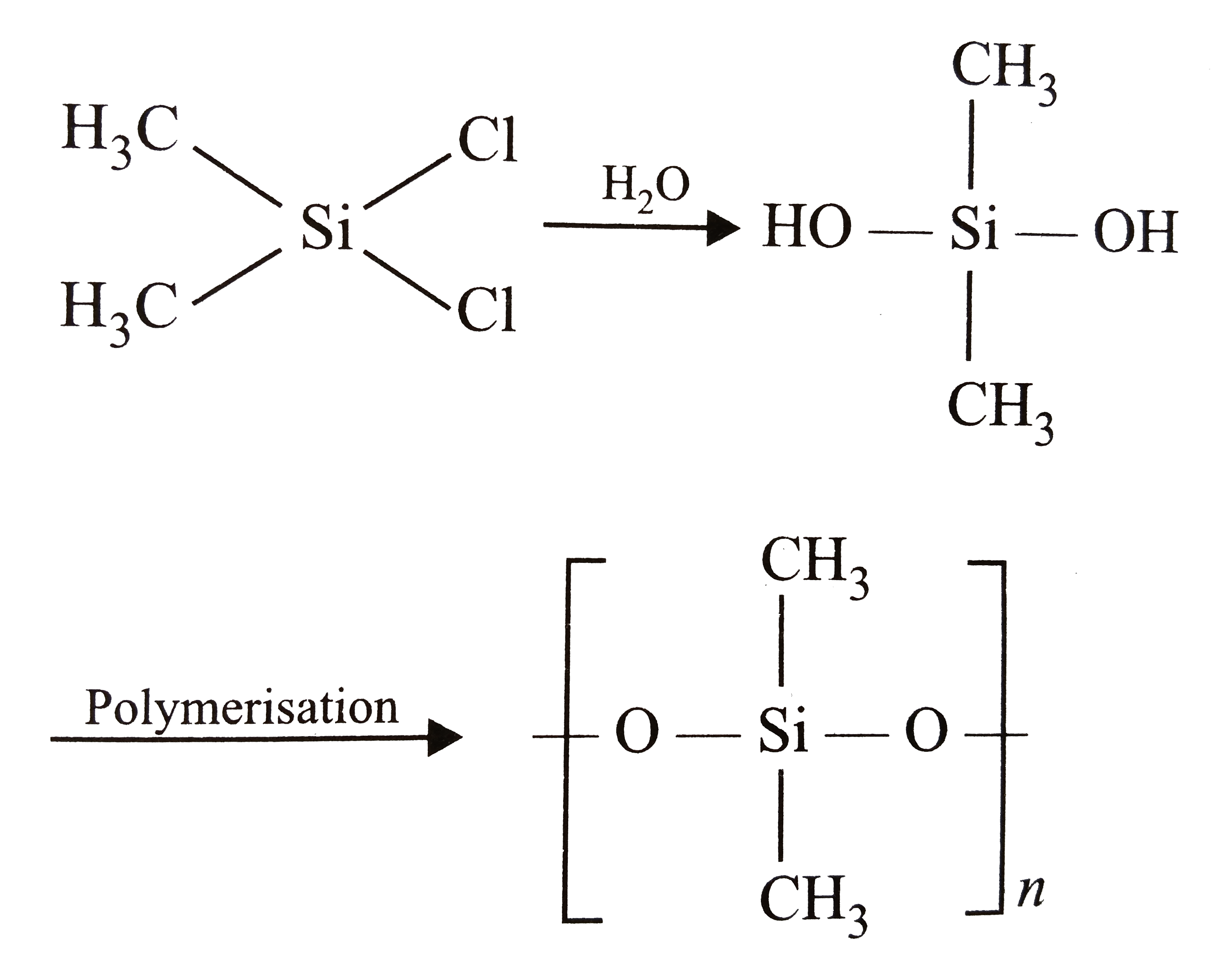(Me)2SiCl2 on hydrolysis will produce.
(Me)2Si(OH)2
(Me)2Si=O
−[−O−(Me)2Si−O−]n−
Me2SiCl(OH)
The correct Answer is:C
Topper's Solved these Questions
- P BLOCK ELEMENTS ( Group 13 -14)BOOK - A2ZCHAPTER - P BLOCK ELEMENTS ( Group 13 -14)EXERCISE - Assertion - Reasoning Questions
4 Videos
- MOCK TESTBOOK - A2ZCHAPTER - MOCK TESTEXERCISE - Mock Test 2
45 Videos
- REDOX REACTIONSBOOK - A2ZCHAPTER - REDOX REACTIONSEXERCISE - Section D - Chapter End Test
29 Videos
Similar Questions
Knowledge Check
SiCl4 on hydrolysis gives:
AsilicaBsilicic acidCsiliconeDsilicateR3SiCl on hydrolysis forms
AR3SiOHBR3Si−O−SiR3CR2Si=ODNone of theseMg3P2 on hydrolysis produces
AMg(OH)2BMgOCPH3DP2O3
Silicones are the organo-silicon polymers. Compounds like R2SiCl2 on hydrolysis produce silicone like −O−Si(R2)−O−Si(R2)−O−Si(R2)−. It may be of chain or cyclic type.
Q. Which is not the use of silicones ?
View SolutionSilicones are the organo-silicon polymers. Compounds like R2SiCl2 on hydrolysis produce silicone like −O−Si(R2)−O−Si(R2)−O−Si(R2)−. It may be of chain or cyclic type.
Q. The water repelling characteristic of silicones is due to
View SolutionSilicones are the organo-silicon polymers. Compounds like R2SiCl2 on hydrolysis produce silicone like −O−Si(R2)−O−Si(R2)−O−Si(R2)−. It may be of chain or cyclic type.
Q. Hardness of silicone polymerr can be controlled by using
View Solution(CH3)2SiCl2 on hydrolysis and on subsequent polymerisation will produce :
View SolutionThe hydrolysis of PCl3 produces
View Solution

